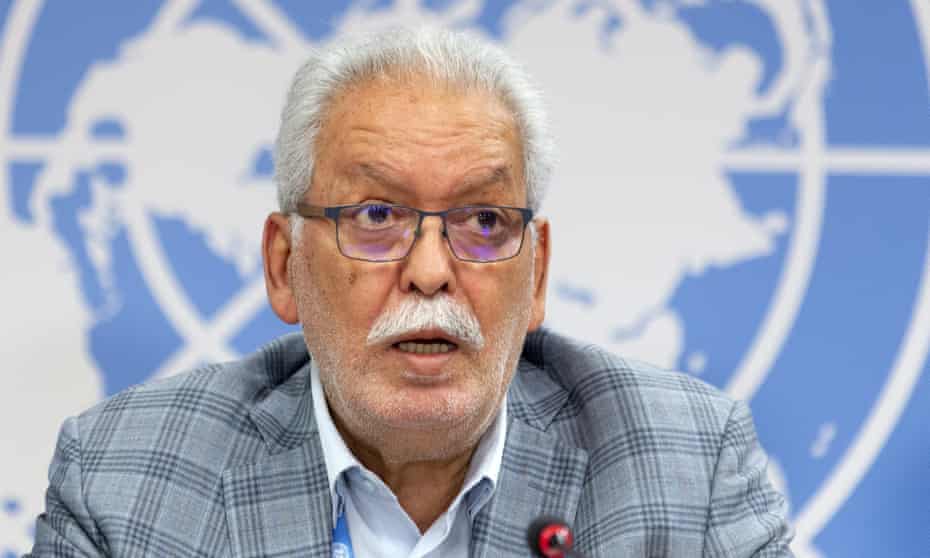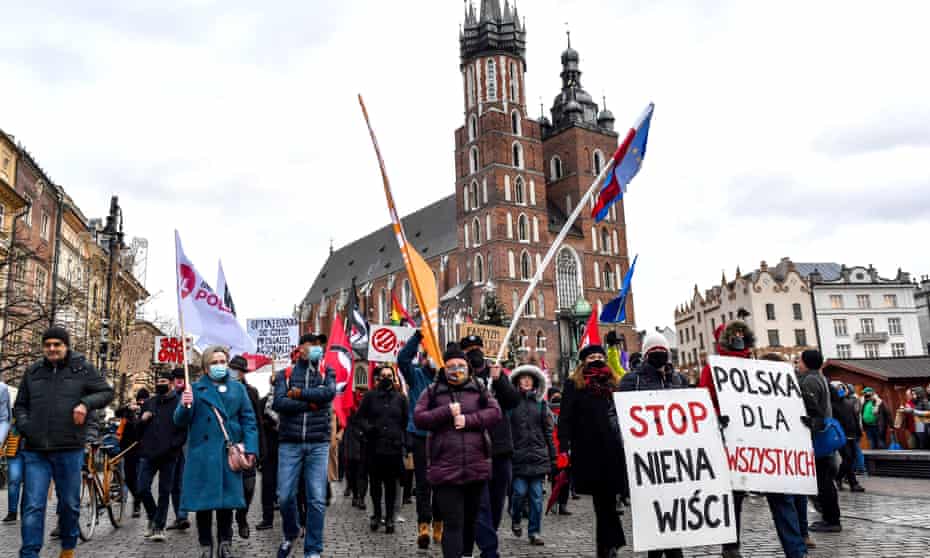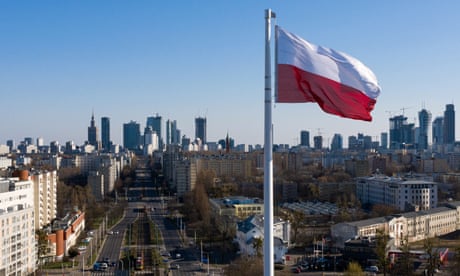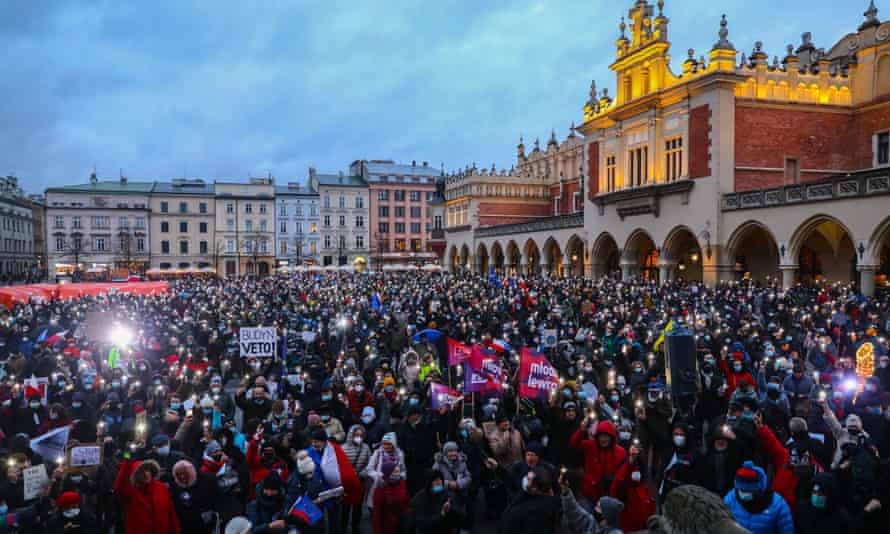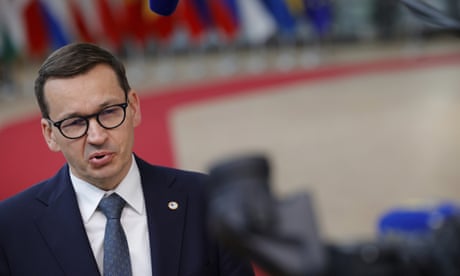
1 of 14
MONTGENEVRE, France (AP) — From the inky night, two women loomed. Police? The wary migrants, crossing the high-altitude Alpine border clandestinely from Italy to France, couldn’t be sure. They scattered and ran.
In fact, the women wanted to help the Moroccans evade border patrols, not detain them. They distributed hand-warmers to the shivering migrants, helped them hide in snowy woods until the coast was clear, and then steered them to waiting cars that whisked them from the frozen peaks to a warm shelter.
“They treated us like humans,” said Hamid Saous, among the rescued. “Not everyone does that.”
As Europe erects ever more fearsome barriers against migration, volunteers working along the Italy-France border to keep migrants from being killed or maimed by cold and mountain mishaps are driven by a simple creed: The exiles from conflict zones and oppression of all kinds who trek through the Alps and onward to European cities in search of brighter futures are people, first and foremost.
Armed with thermoses of hot tea and the belief that their own humanity would be diminished if they left pregnant women, children and men young and old to fend for themselves, the Alpine helpers are a counter-argument to populist politicians with large followings in Europe who say migrants, particularly Muslims and Africans, are threatening European livelihoods and liberal traditions.
In the Alps, on both sides of the border, the approach is essentially humanist and humanitarian, grounded in local traditions of not leaving people alone against the elements. Starting around 2016, when they first began encountering sneakered and thinly clothed migrants in trouble on Alpine passes, mountain workers refused to look the other way.
That assistance grew into networks of hundreds of volunteers who run migrant shelters, clothe those in need for the hazardous crossing and trek into the cold. They clear paths in the snow by day for migrants to follow and wait for them at night, to guide them past border police to safety and, if necessary, treatment for frostbite and other medical needs.
“Often, we say, ‘Welcome! How are you?’ We speak a bit of English because most people speak at least a bit,” said volunteer helper Paquerette Forest, a retired teacher.
Some refuse assistance, generally “men who are quite robust,” she said. “Exhausted people say, ‘Yes.’”
“We walk with them, discreetly. We try to avoid being spotted. We wait in the forest if needed. And we sort out vehicles to come and pick them up,” she said.
Migrants credit the volunteers for saving lives and limbs. The Alps aren’t as deadly for migrants as the Mediterranean Sea, where many hundreds have died or gone missing this year alone. And the mountains have so far been spared a tragedy on the scale of the boat sinking that killed 27 men, women and children, the majority Iraqi Kurds, in the English Channel in November.
“If not for them, we would have died of cold,” said Aymen Jarnane, 23, another Moroccan led to safety on a night when the thermometer dropped to minus-15 degrees Celsius (5 Fahrenheit).
But there have been deaths. Aid groups pleaded for French authorities to provide Alpine shelter to exiles and stop pushing them back into Italy after a Togolese man found hypothermic in freezing temperatures died during a night trek across the border in February 2019.
Iranian exile Bizhan Bamedi had a companion film him on the crossing, to show how punishing it is.
“Hi guys. I’m recording this for those who say, ‘Good for you, you went to Europe!’” he said, ankle-deep in snow in a clearing amid frosted pines. “Someone like me who has crossed through jungles and mountains from Turkey is now here. I have no place to lie, no place to sit. ... It’s a really difficult path.”
“The temperature is minus-10 degrees,” he continued. “I’m hungry and thirsty but can’t eat snow. Good luck!”
On top of the physical difficulty, a cruelty of the crossing is that Europeans pass through the border without even knowing it’s there. Crisscrossed by ski runs, the frontier is a playground for vacationers who don’t get stopped by police. But it is so inhospitable for migrants that some quickly give up, even equipped with donated cold-weather gear.
“When you are African or Arab with black hair you’re not getting through even if you dress up like that,” said Jarnane. “If you put on a hat or something, people can still see your brown or black eyes and that you’re not from around here.”
Health workers in a volunteer-run shelter for migrants on the French side, in the fortified town of Briançon, patch up those who get through.
“People arrive cold, dehydrated, thirsty, hungry,” said Isabelle Lorre of Doctors of the World, after taking care of an Iranian with an infected toe who trekked for 15 hours through snow he said was thigh-deep at times.
European opponents of migration argue that aiding exiles encourages others to follow. The view of those assisting them in the Alps is that not helping simply isn’t an option.
“Some of them have traveled 7,000 or 8,000 kilometers before getting here, so it’s not a mountainous barrier that will stop them,” said Jean Gaboriau, a mountain guide who helps run the Briançon shelter.
“Regardless of skin color, political or religious beliefs, everyone has the right to be saved or simply to be welcomed.”
___
Follow AP’s global migration coverage at https://apnews.com/hub/migration
By SARAH EL DEEB and CHRISTOPH NOELTING

Syrian Kurd Bushra, who only gave her first name, poses for a photograph in Minsk, Belarus, Sept. 22, 2021. Bushra set out on the perilous trip to Europe through Belarus. She didn't leave when Syrian government forces first withdrew from her areas at the start of the war, or when Islamic State militants ruled her town. She did it when she saw no end to the risks of staying home. After a harrowing journey, she has made it to Germany. (Bushra via AP)
GIESSEN, Germany (AP) — She had already walked for 60 hours through the wet, dark forests of Poland, trying to make her way to Germany, when the 29-year-old Syrian Kurd twisted her knee.
It wasn’t the first setback in Bushra’s journey.
Earlier, her road companion and best friend had fainted in a panic attack as Polish border guards chased them. They hid in ditches and behind trees as her friend tried to regain her breath, but it was no good. They turned themselves in and the guards dumped them back across the border into Belarus.
They quickly returned, bedraggled and wet, on the same trail. After twisting her knee, Bushra persevered. For two more days, she dragged her right foot behind her through the rain and freezing temperatures of the forests. Finally, they reached a Polish village where a car took them across the border into Germany — for a life she hopes will be free.
“I put up with the unbearable pain. Running away from something is sometimes the easiest thing,” Bushra said in the central German town of Giessen, where she applied for asylum as a refugee. “There is no future for us in Syria.”
Bushra, who asked that her last name be withheld for her own safety, is the face of the new Syrian migrant. More Syrians are leaving home, even though the 10-year-old civil war has wound down and conflict lines have been frozen for years.
They are fleeing not from the war’s horrors, which drove hundreds of thousands to Europe in the massive wave of 2015, but from the misery of the war’s aftermath. They have lost hope in a future at home amid abject poverty, rampant corruption and wrecked infrastructure, as well as continued hostilities, government repression and revenge attacks by multiple armed groups.
More than 78,000 Syrians have applied for asylum in the European Union so far this year, a 70% increase from last year, according to EU records. After Afghans, Syrians are the largest single nationality among this year’s nearly 500,000 asylum applicants so far.
Nine out of 10 people live in poverty in Syria. Around 13 million need humanitarian assistance, a 20% increase from the year before. The government is unable to secure basic needs, and nearly 7 million are internally displaced.
Roads, telecommunications, hospitals and schools have been devastated by the war and widening economic sanctions are making reconstruction impossible.
The coronavirus pandemic compounded the worst economic crisis since the war began in 2011. Syria’s currency is collapsing, and minimum wage is barely enough to buy five pounds of meat a month, if meat is even available. Crime and drug production are on the rise while militias, backed by foreign powers, operate smuggling rackets and control entire villages and towns.
The numbers are far below the levels of 2015, but desperate Syrians are racing to get out. Social media groups are dedicated to helping them find a way. Users ask where they can apply for work or scholarship visas. Others seek advice on the latest migration routes, cost of smugglers, and how risky it would be to use assumed identities to get out of Syria or enter other countries.
At the same time, Syria’s neighbors, grappling with their own economic crises, are calling for the refugees on their soil to be sent home. Among the new migrants to the EU are Syrians leaving Turkey or Lebanon, where they had been refugees for years.
Belarus briefly opened its border with Poland to migrants this summer. That created a standoff with the EU, which accuses Belarus President Alexander Lukashenko of orchestrating illegal migration in retaliation for European sanctions against him.
Bushra was one of only several thousand who managed to get through from Belarus, where 15 died trying to make the trek.
She left for Minsk from Irbil, Iraq, in late September.
It was the start of a harrowing journey. Bushra recounted how they survived on biscuits and water for days and how six of them slept sitting up on a single dry mat. Her friend broke a tooth shivering from the cold.
After the forest ordeal, they had to hide in a ditch at one point when a police patrol with sniffer dogs came to check their car. Riding along the highway, Bushra removed her head scarf to avoid suspicion at checkpoints. She reached Giessen on Oct. 12.
“I surprised myself by how I put up with all this,” Bushra said.
It was all worth it, she said. “When you lose hope, you follow a path more dangerous than where you started.”
Bushra’s life in Syria had been in upheaval for years. She was at university in the eastern city of Deir el-Zour when the war broke out in 2011 and anti-government protests spread in the city. She quickly moved to another university farther north. Soon Deir el-Zour and the rest of the east were taken over by the Islamic State group.
Bushra and her parents were outside IS rule in the Kurdish-held northeast but still lived in fear of violence. She hardly left the house for two years.
Eventually, she found a job with an international aid group. Ever since, she saved up to leave, checking into routes out of Syria.
Syria’s oil-rich northeast, which already suffered from years of neglect, was devastated by the war. Drought wrecked farmers’ livelihoods. The currency collapse gutted incomes. The salary of Bushra’s father, a government employee, is now worth $15 a month, down from $100 at the start of the war.
Moreover, the region was not secure. IS militants were defeated in 2019, but sleeper cells continue to target Kurdish-led security and civil administration.
Eight kidnappings were reported this summer in a town near her.
Threats were made against Bushra after she exposed a corruption case involving powerful local officials, causing her to fear for her life. She declined to give details because her family remains in Syria.
The harassment expedited her plans to leave and convinced her parents, who had been worried about a single woman going on such a journey alone.
The U.S. troop withdrawal from Afghanistan this summer raised Bushra’s worries that the U.S. would also pull out its 900 troops in Syria’s Kurdish-administered northeast. The troops carry out anti-terrorism operations with local forces, and their presence also keeps rival forces at bay.
If they withdraw, she feared that Turkey, which considers the Kurdish-led forces in Syria as terrorists, could launch a military campaign against the Kurds. Syrian government forces would also move in, endangering Bushra because they consider those who work with international aid groups unregistered in Damascus as traitors.
“If I stay in Syria, I will be pursued by security all my life,” she said.
Gaining asylum and residency in Germany is her gateway to freedom.
She hopes to study political science to understand the news, which she boycotted since the war started to avoid scenes of the atrocities she was already living. She wants to have freedom to travel. “I am done with restrictions,” she said.
Going back to Syria is impossible, she said. If she doesn’t get her papers in Germany, Bushra says she will keep trying.
“If I can’t get to where I want to go, I will go to where I can live.”
___
El Deeb reported from Beirut.


